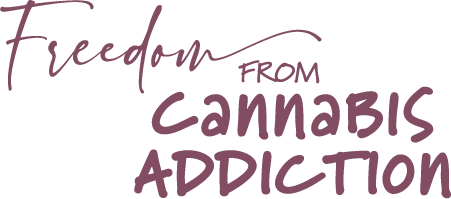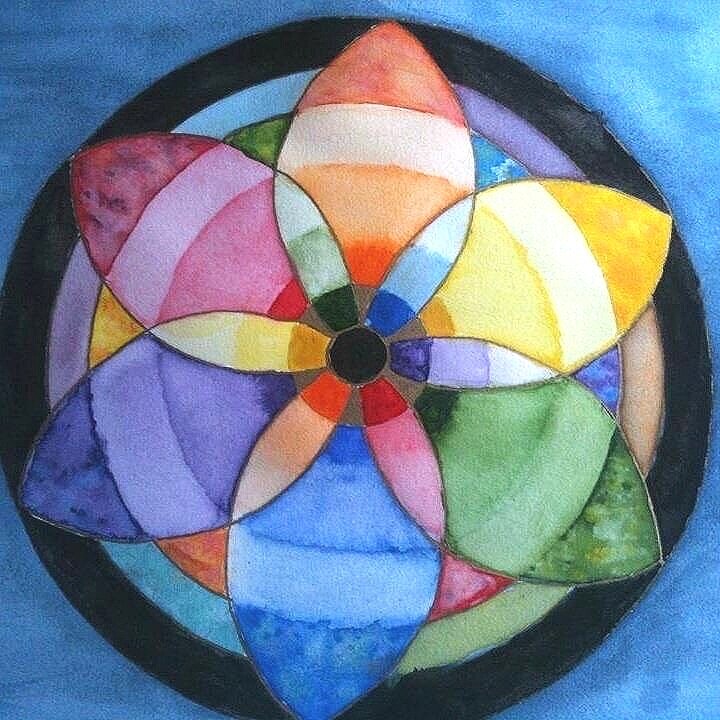
FREEDOM FROM CANNABIS ADDICTION: Introduction
People Free & In Recovery from Cannabis Addiction
“For women [people] then, poetry is not a luxury. It is a vital necessity of our existence. It forms the quality of light within which we predicate our hopes toward survival and change, first made into language, then into idea, than more tangible action.”
— Audre Lorde
Introduction
Freedom from Cannabis Addiction:
People Recovering and Free from Cannabis Dependence and Addiction©
by Antonia Teresa Amore Broccoli, MSW, LCSW
2/22/2024
Freedom from Cannabis Addiction is a platform dedicated to the visibility and collaboration of people who have experiences with cannabis addiction and recovery. We are dedicated to the transparency of different peoples experiences and stories about cannabis addiction and recovery; as well as the visibility of people who are traditionally underrepresented. As people recover from cannabis many people are also healing from complex underlying issues which led to dependence on and addiction to cannabis. It is common for people in recovery from cannabis addiction to discover they have been medicating themselves with cannabis for a combination of the reasons listed above. This is compounded when people have complex history of trauma. Some have survived childhood abuse, sexual abuse, domestic violence, or other traumas. Some are adult children of alcoholic or chemically dependent parents. Some have been coupled with partners who are chemically dependent and/or have mental health challenges.
Freedom from Cannabis Addiction is a space to give voice and dignity each other to variable people who are creating a daily self-empowering recovery program.
The stories here represent the many paths on the road of healing and recovery as people free themselves from the devastating and demoralizing consequence’s of cannabis addiction.
The stories depict the multiple underlying issues which led to cannabis use disorder and eventually active addiction.
So why create a platform and write a book about cannabis dependence and addiction when people are righteously fighting to decriminalize cannabis use? Especially when a disproportionate number of nonwhite, working class, and the poor people are in prison for cannabis charges. This reality is a clear example of systemic racism in our US judicial system. These concerns, although valid and urgent, are beyond the scope of this book. The decriminalization and legalization of cannabis has as much to do with cannabis dependence and addiction as the end of the prohibition era (in 1933) had to do with the issues of alcoholism. They may be related, but indirectly related. Alcoholism and Cannabis Addiction are both a biological, psychological and social dependence on a mind altering substance.
Cannabis addiction manifests when a person is unable to moderate and control their cannabis use despite their best efforts and intentions. As a result of active addiction adverse consequences begin to infiltrate a persons life, such as; career motivations and endeavors, relationship’s, socialization, cognitive functions; as well as their over all health and well being.
As cannabis has become more and more legal through out the US and globally this has made it much easier for a much larger and broader population of people access cannabis. As a result a larger and more diverse population of people are using cannabis. Addiction medicine research has revealed that significantly more people are seeking treatment for cannabis addiction. Substance abuse treatment programs report, a much higher percentage of people seeking treatment specifically for their cannabis addiction in the last 10 years than ever before. People are seeking help for cannabis dependence and addiction through self-exploration, psychotherapy, and self-help sobriety groups as well.
People are seeking treatment for some of the adverse, physical, psychological and mental health consequences of cannabis use disorder and full blown addiction. Some of these consequence’s include cannabinoid hyper eminence syndrome, as well as cannabis induced psychosis, worsening mental health issues; such as bipolar and ADHD and driving under the influence and/or Overall deconditioning of emotional, psychological and physical well-being and health.
The amount of people seeking treatment for cannabis use disorder and addiction is unlike any other time in the history of addiction medicine treatment in the United States. The same is true in Canada and in a growing number of other countries through out the world. Over the last five to ten years, there has been a significant increase in the number of people seeking help for cannabis addiction.
Traditionally, cannabis has been regarded as less harmful than alcohol or other substances. However, becoming addicted to cannabis can lead to many of the same feelings as that other addicts and/or alcoholic’s tend to feel and experience. People progress to the point where they are unable to moderate their use of cannabis and lose complete control to the point where using cannabis use is not longer a choice but a necessity. Feelings of shame, quilt, regret, embarrassment, and psychological and emotional suffering. Cannabis use disorder or addiction can still involve the day-to-day struggles similar to what we see in other addictions, Cannabis dependence and addiction is a real medical addiction in its own right.
Cannabis is one of the most popular drugs on the market today. It is marketed regularly by dispensaries and supporters of medicinal cannabis as a harmless fun with multiple medicinal benefits. Cannabis is still the second most commonly used psychotropic drug in the United States, alcohol being the first. Its use is widespread among all ages, but increasingly among young people. In 2018, more than 11.8 million young adults reported that they had used marijuana in the past year. Men are still the majority of users of cannabis, but cannabis use is increasing among women. [1] and non binary people.
This platform is not about those who rely on the medicinal benefits of cannabis on a regular basis. This is an account of mostly healthy people who have been adversely affected by the chronic use of cannabis. This book is about how recreational or medical use of cannabis can lead to dependence and addiction. This book will depict cannabis addiction and recovery through the stories of people whose addiction has profoundly and adversely affected their lives personally, psychologically, emotionally, and professionally.
The Hazelden Betty Ford Foundation reported as far back as the late 1980’s and early to mid-1990’s that 9% of people who use cannabis recreationally become psychologically and physically addicted to cannabis. This percentage is even higher if the person began smoking pot in their teenage years. In 2020, The National Institute on Drug Abuse Advancing Addiction Science reports that cannabis can lead to the development of a usage problem in those who use it on a regular basis. This is known as cannabis use disorder, which can take the form of addiction in severe cases. Recent data suggests that 30% of those who use cannabis regularly may have some degree of cannabis use disorder. [2] People who began using cannabis before the age of 18 are four to seven times more likely to develop cannabis use disorder than other adults. [3]
Some people wake up one day from a cloud of mind-altering smoke which addiction medicine calls “cannabis induced delusions or confusion.” At some point, people may begin to have a clear realization that their life has stagnated. Their life is being profoundly affected by chronic cannabis use or dependence on the plant. There may be a realization that the original intent of cannabis as a coping mechanism for the underlying issues is no longer working. People realize it has become difficult to moderate or control their cannabis use. People may simply grow tired of their unsuccessful attempts to control and moderate their use of cannabis. This often leaves people feeling terrible about themselves, blaming themselves for their own lack of willpower. Other times, it may be the impact on their general health and well-being which becomes the reason why they will choose a life free from cannabis. Other people attempt for years to moderate or controller cannabis use with little or no success. Some people will try recovery programs and self-help groups and still they go back to using again and again. Chronic cannabis use can also worsen pre-existing mental health conditions. Sometimes, it does this long after one originally started using cannabis to self-medicate due to one's mental, or physical health symptoms.
For some people their mental health symptoms become worse when they attempt to stop cannabis, so they soon return to it within a few weeks, months or after the first year.
In less common cases (yet this too is on the statically rise) chronic and heavy cannabis use can sometimes cause psychosis. The higher THC levels in cannabis can cause psychotropic effects that can lead to lifelong cognitive and social deficits.
Recovery from cannabis addiction—especially acute detox withdrawal from THC—is difficult for those who have become dependent on or addicted to cannabis. However, for women who have complex underlying issues such as trauma, the psychological and physical effects of acute detox from cannabis can be overwhelming and intolerable. Acute detox from cannabis in the first fifteen to thirty days without cannabis can be painful and challenging.
After the initial detox of cannabis, Addiction medicine refers to post-acute withdrawal syndrome (PAWS) of Cannabis addiction. PAWS consists of cluster cyclical psychological symptoms that occur for months into the first couple years of early recovery. Cluster cyclical psychological symptoms can feel like bi-polar disorder. The individual experiences moderate to extreme ups (productivity, stronger self-confidence, and social participation in recovery circles) and downs (anxiety, alienation, insomnia, withdrawal, shame, and depression) that can cycle over a few days, weeks, or even months at a time. It can take up to two years (sometimes five) for a cannabis user to return to their biological, neurological, and psychological systems to equilibrium.
This process and time line can be overwhelming for some people.
We will explore how underlying trauma in relationship with PAWS affects peoples ability to maintain long-term continuous cannabis abstinence. Many people with trauma history are persistent in their recovery efforts and remain dedicated to their healing and recovery process despite periodic or occasional physical relapses. Many of peoples physical relapses are often a result emotional deregulation from underlying mental or neurological diverse health challenges. PTSD triggers and even disassociate moments.
Therefore, it is important for recovery programs, clinicians and/or sponsors to validate a persons accumulated abstinence recovery as honorable and significant for healing and recovery. This reinforces sobriety as well as a persons self esteem and confidence in maintaining long term recovery goals.
PAWS symptoms can also reoccur in long-term sobriety when a person is under stress or facing life challenges. The return of symptoms can make the user more vulnerable and emotional. Acute detox and long-term PAWS can be quite challenging, making it difficult for people to get clean and stay clean from cannabis for lengthy periods of time (“Acute Detox and PAWS specific to cannabis addiction”chapter under construction ). However, with an intentional commitment to recovery as well as a structured treatment program for recovery people can transform their lives into a daily self-empowered practice of self-love, self-compassion, and self-discovery free from cannabis addiction. As people free themselves from cannabis addiction, they unfold their authentic selves.
This platform and forthcoming book presents first hand stories from people living free from cannabis addiction. First hand stories from people along with the addiction research presented on this platform, disprove the belief many hold that cannabis is not harmful or truly addictive.
Recovery is celebrated while presenting current cannabis addiction research. The personal stories included depict how people in recovery from cannabis addiction have become profoundly committed to their own personal healing and self-awareness. Commitment and newfound sobriety have given individuals purpose and strengthened their belief that they can contribute meaningfully to society. In these personal stories, people have been encouraged to share how they have addressed the underlying psychological, emotional, and social issues which were often suppressed during chronic cannabis dependence and addiction.
How do people address these issues today in a healthier way? People in recovery have been asked to describe the rewards and benefits of their recovery. They also share how sobriety has been joyful and rewarding, though painstaking and tedious at times. People’s stories underscore how their lives has been profoundly affected by chronic cannabis use. They also explain how, with a solid commitment to self care and a connection to their recovery communities, they experienced the profound rewards and benefits of recovery. Being free of cannabis requires a daily conscious intention despite all the challenges people face in life. Staying sober and free from active addiction enables people to live the life they dreamed of living when they were using.
Many people have realized that their altered state of chronic cannabis use created cognitive illusions or delusions. In recovery, people can finally let delusions go and face reality through acceptance. Abstinence from active cannabis addiction can transform both one’s personal and professional lives. Many people in long-term recovery have gone on to live a life beyond their hopes and desires that they had before they were caught in the insidious and baffling grip of cannabis addiction.
Some of the stories on this platform began before criminal laws were undergoing change regarding cannabis use in America and Canada. Other stories began during the cannabis legalization era. The people depicted in these stories are committed to staying clean of cannabis, even as society at large celebrates legalization victories countries. Some of the stories of getting free from cannabis dependence or addiction are no doubt impacted by this cannabis ‘legalization buzz,’ a movement which inevitably is reaching many parts of the globe. Nevertheless, people in recovery from cannabis addiction are experiencing a new level of commitment to their sobriety, even while dispensaries pop up like espresso cafés. Cannabis addicts in recovery are learning to accept a new social environment, much like recovering alcoholics are constantly confronted with liquor stores and local bars on every corner.
On this platform and forthcoming book we will explore the different social and medical models of addiction theory. We will also present various treatment modalities for addiction along with their effectiveness for maintaining sobriety. Treatment modalities which address emotional issues, psychological issues, and vulnerable triggers which come with short-term and long-term sobriety will be discussed. Educational chapters also depict the potential risks and dangers of cross-addiction. As cannabis becomes more widely legalized, those who seek recovery will need greater access to treatment for this growing addiction.This book also explores relapse prevention, including a workbook for relapse prevention in marijuana addicts in recovery. Specific clinical treatment modalities will offer tools to assist in the endeavor of long-term sobriety.
Freedom from Cannabis Addiction encourages people to explore a recovery path that is self-empowering and personalized. Being clean and sober requires daily, conscious intention, but enables people to live the lives they dream of. Freedom from Cannabis Addiction is small group of people embracing and celebrating our recovery from cannabis addiction.
Freedom from Cannabis Addiction is dedicated to the visibility of all people who have similar experiences with cannabis addiction and recovery. This platform and book is committed to presenting people in recovery from cannabis who have traditionally been less valued, visible, and represented in traditional treatment programs, due to systemic racism, ableism, sexism, classism, misogyny, lesbian/biphobia and transphobia.
References:
5) Gender and Use of Substance Abuse Treatment Services by Carla A. Green, Ph.D., M.P.H. NIAAA Publications
another resource:
https://www.webmd.com/mental-health/addiction/ss/slideshow-marijuana-abuse-addiction
©Freedom from Cannabis Addiction:
People Recovering and Free from Cannabis Dependence and Addiction
© Antonia Teresa Amore-Broccoli, LCSW

